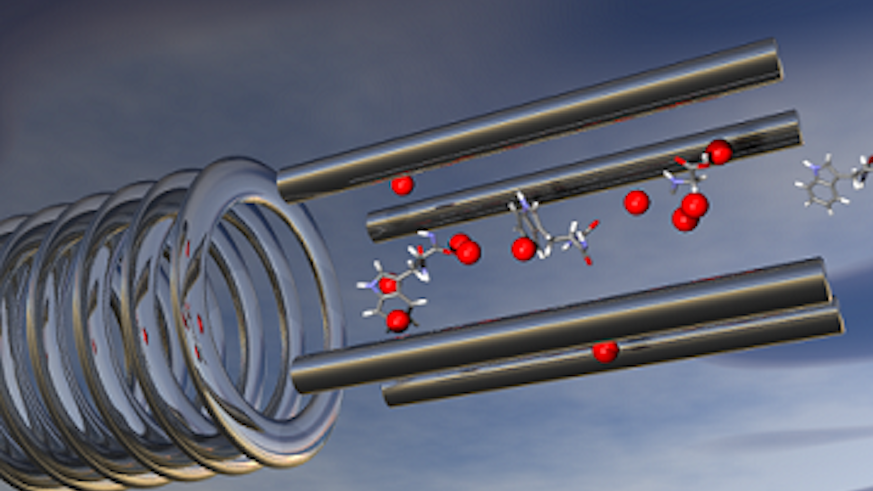Technology investment broadens Chemistry’s spectrum
16 Ionawr 2014

School of Chemistry researchers, students and industrial partners are all set to benefit from a state of the art mass spectrometry suite.
Mass spectrometry, which measures the mass of molecules, is one of the core analytical techniques in chemistry. The School has just won a major investment from the Engineering and Physical Sciences Research Council for a suite of three complementary instruments, making Cardiff one of the leading facilities of its kind in the UK.
The suite, due to open in the summer of 2014, will occupy a dedicated newly refurbished laboratory in Main Building. The three instruments will reveal the molecular and atomic constituents of an enormous breadth of samples, from metal catalysts through to proteins. The new facility will support the School's drive to solve global challenges of healthy living, clean air and water, green energy and sustainable chemicals manufacture.
The suite's flagship instrument allows separation of complex mixtures into their constituent molecules for further analysis to determine mass and size. The instrument will be invaluable for biological projects involving peptides and proteins, such as probing the action of enzyme inhibitors which are implicated in rheumatoid arthritis.
The second instrument, an inductively coupled plasma mass spectrometer, can detect and quantify metals present at minute concentrations. This instrument will be put to work on such projects as investigating the binding of metal ions to the amyloid fibrils of Alzheimer's disease.
The final instrument will allow chemical identification of volatile molecules evolved during controlled heating of solids. The instrument will particularly benefit projects in automotive exhaust catalysts, bioenergy, biomass processing and high performance materials.
The new suite will be an important resource for the School's many collaborative projects with industry worldwide, including petrochemical, automotive, precious metals and pharmaceutical sectors. It will also enable cross-disciplinary collaborations with colleagues in the College of Physical Sciences and Engineering and elsewhere in the University. For example, School researchers will work with the Schools of Medicine and Dentistry on developing materials for medical devices such as self-sterilising catheters. The School's students and postdoctoral researchers will also get hands-on experience of this cutting-edge equipment, giving them analysis skills which are greatly in demand in industry and academia.
Head of Cardiff University School of Chemistry, Professor Rudolf Allemann, said: "This latest investment in mass spectrometry perfectly complements recent enhancements to the School's NMR and X-ray facilities. Our researchers can enjoy hands-on access to the latest analytical instruments. We expect many fruitful collaborations to ensue both within and beyond Cardiff, and for our students to take their expertise into the wider world."